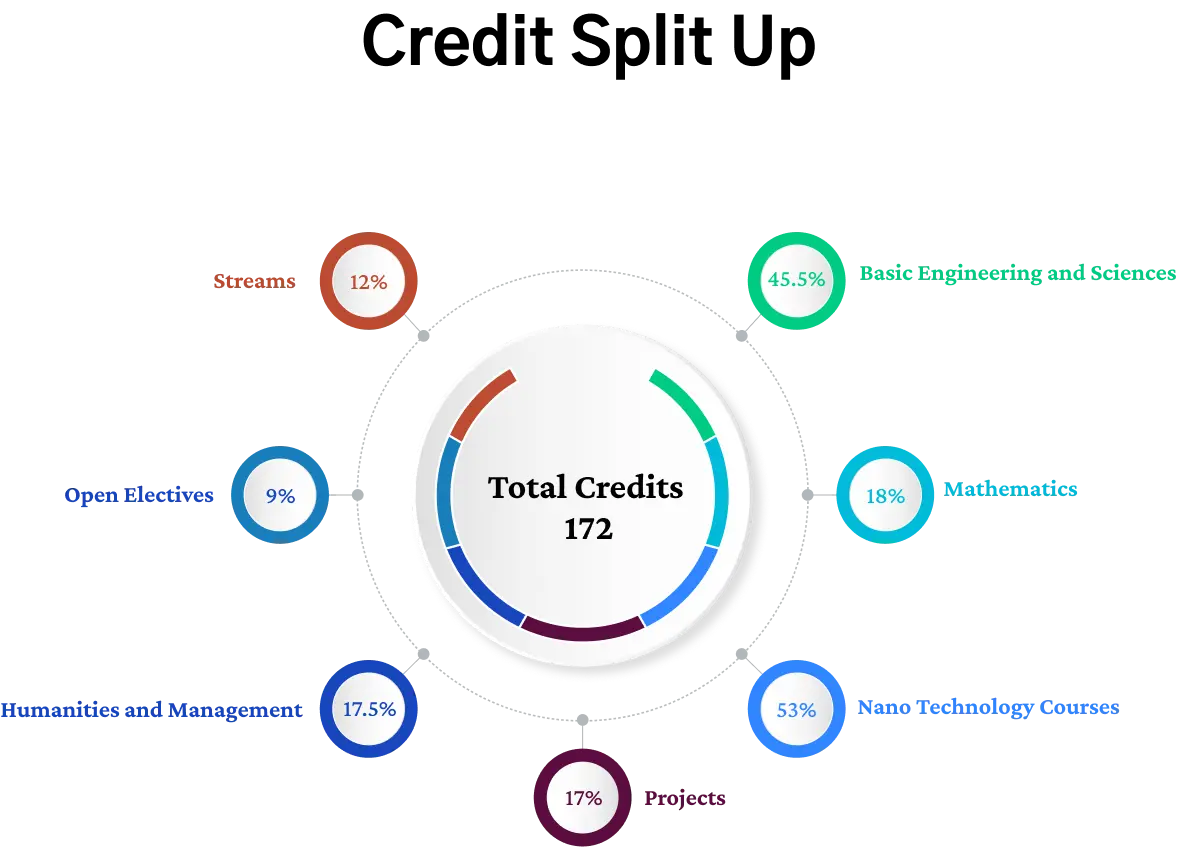B.Tech in
Nanotechnology Program
Overview
Nanotechnology Program
Historically, conceptual foundation of Nanotechnology was laid by Nobel Laureate and Physicist Richard P. Feynman in 1959, wherein he conceptualized that it should be possible to manipulate and control things on a small scale – and achievable if we develop the technology to manipulate and control individual atoms and molecules with a “bottom up” approach implying that we build things from the molecule up, and rearrange matter with atomic precision, which eventually indeed became possible by the process called “molecular manufacturing”. “Nanotechnology”, is attributed to Norio Taniguchi (1970s), who introduced it to describe “manufacturing to finishes and tolerances in the nano-metric regime.” Nanotechnology involves the fabrication and application of materials and devices with sizes that range from of 0.1–100 nanometers (one nanometer is one billionth of a meter, 10-9 m!). To get a comparative idea on a relative scale if we consider a marble of one nanometer diameter, then diameter of the Earth would be about one meter. Although nanoscience and nanotechnology are relatively new, nanoscale materials have been found to have existed as early as in some Roman era artefacts and in ancient Indian medicinal formulations. However, a systematic study of the synthesis of nanometer-sized materials and the understanding of their properties emerged only during the last few decades. In the new millennium, these fundamental research studies laid the foundation for numerous applications of nanomaterials in a variety of industries such as energy, environment, construction, photonics, electronics, cosmetics, food & agriculture and medicine.
The global nanotechnology market has been projected to reach a value of 90 billion USD by the year 2021, and continue to grow at a compound annual growth rate (CAGR) of close to 16% in the time period 2020 – 2028, of which nanomaterials market alone could become a 16 billion USD market. As many as 5000 consumer products, spread across various product categories (Figure 1), that contain nanomaterials in their formulations are already available in markets worldwide, suggesting that “nanotechnology and nanomaterials have entered what is known as consumerization”.
Companies across different industrial sectors have embraced nanotechnology for better processes and products and a large number of new nanotechnology-based companies have also emerged across the world in the recent times (Figure 2). Considering this rapid rise in the past decade of nanotech products and companies and the ones likely to arise in the near future, nanotechnology is expected to play a crucial role in fulfilling the UN’s millennial development goals.
About the Program









